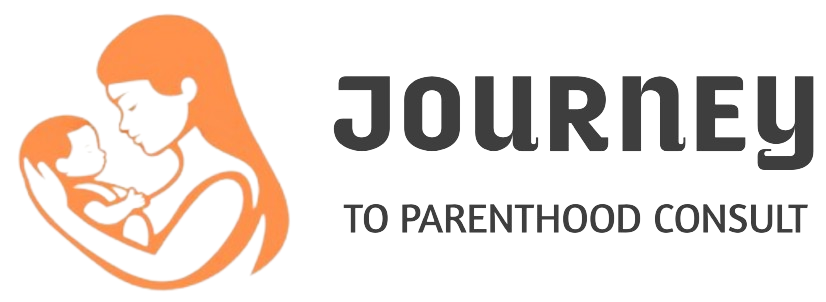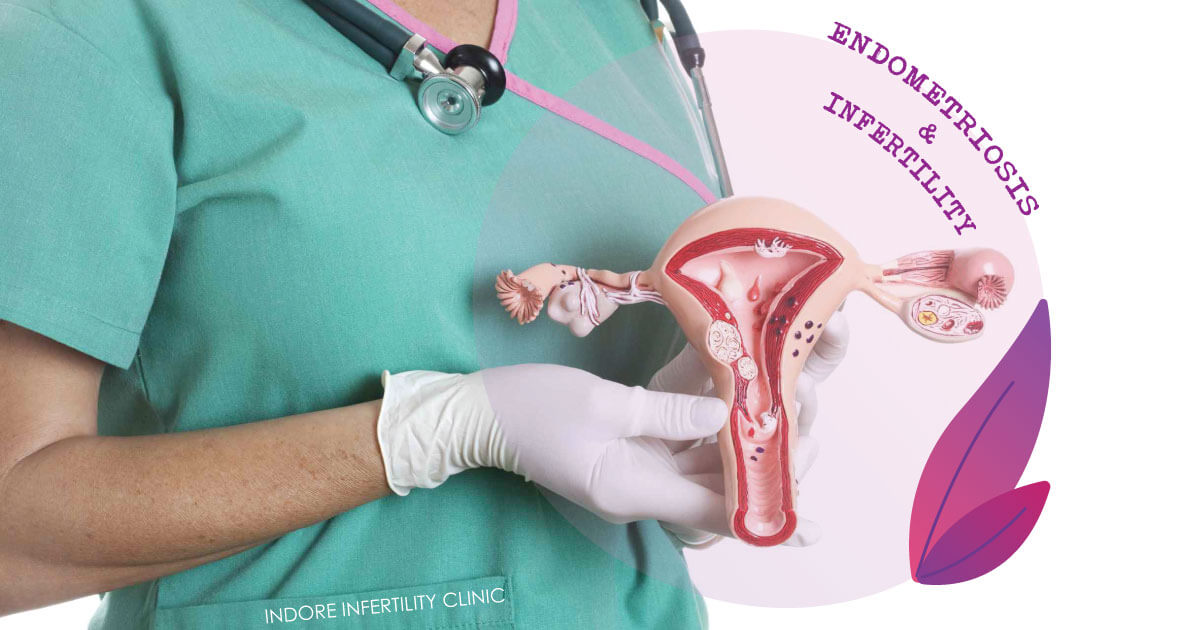Endometriosis is a chronic condition that affects millions of women worldwide, causing significant physical and emotional distress. It occurs when tissue similar to the lining of the uterus grows outside the uterine cavity, leading to pain, inflammation, and potential complications. One of the most concerning aspects of endometriosis is its potential impact on fertility. If you or someone you know is struggling with both endometriosis and infertility, understanding the connection between the two can help in managing the condition and seeking appropriate treatment. In this article, we will explore how endometriosis affects fertility, the potential complications, and available treatment options to increase the chances of conception.
What is Endometriosis?
Endometriosis is a condition where tissue that behaves like the endometrium (the lining of the uterus) begins to grow outside the uterus. It can develop on the ovaries, fallopian tubes, and other organs in the pelvic area. During the menstrual cycle, this tissue responds to hormonal changes and can become inflamed and irritated, causing pain, scarring, and adhesions. As the tissue builds up and has no way to exit the body, it can lead to a number of symptoms, including:
- Chronic pelvic pain
- Painful periods (dysmenorrhea)
- Pain during intercourse
- Heavy or irregular bleeding
- Digestive issues (such as bloating, constipation, or diarrhea)
Though the exact cause of endometriosis remains unclear, it is believed to be linked to genetic, immune, and hormonal factors.
How Endometriosis Affects Fertility
The connection between endometriosis and infertility is complex, and not every woman with endometriosis will face difficulties in getting pregnant. However, studies show that women with moderate to severe forms of endometriosis may experience fertility problems. Here’s how endometriosis can affect fertility:
1. Fallopian Tube Blockages
Endometriosis can cause adhesions (scar tissue) and cysts (endometriomas) to form on the fallopian tubes, which are essential for the fertilization process. These adhesions can block or distort the fallopian tubes, preventing the egg and sperm from meeting. If the fallopian tubes are damaged or blocked, the sperm may not be able to reach the egg, leading to infertility.
2. Ovarian Function Disruption
Endometriosis can affect the ovaries by causing cysts, known as endometriomas, to develop. These cysts can interfere with ovulation, which is the release of eggs from the ovaries. When ovarian function is impaired, it can reduce the number of healthy eggs available for fertilization. Endometriomas may also damage ovarian tissue, reducing egg quality and quantity, which can lead to difficulties in conception.
3. Increased Inflammation and Immune Response
The inflammatory environment caused by endometriosis may make it harder for an embryo to implant in the uterus. In addition, the immune system may become dysregulated in response to the presence of endometrial-like tissue outside the uterus. This can further impact fertility by preventing normal embryo development or implantation, making it more challenging to achieve pregnancy.
4. Hormonal Imbalances
Endometriosis can also lead to hormonal imbalances, particularly involving estrogen, which can affect the reproductive process. High levels of estrogen can cause the endometrial tissue to grow and thicken excessively, which may disrupt normal ovulation and fertility. Hormonal imbalances can also reduce the chances of successful implantation and pregnancy.
The Impact of Endometriosis on IVF Success Rates
In vitro fertilization (IVF) is often recommended for women with endometriosis who struggle with fertility. While IVF can be effective for many, women with endometriosis may face lower success rates compared to those without the condition. This is due to several factors:
- Decreased egg quality and quantity: Women with severe endometriosis may have fewer healthy eggs available for fertilization.
- Fallopian tube damage: If IVF is necessary due to blocked or damaged fallopian tubes, the process can be more complex.
- Embryo implantation issues: The inflammatory environment in the uterus can make it harder for the embryo to implant successfully.
However, IVF can still be a viable option for many women with endometriosis, particularly with appropriate treatment and support.
Treatment Options for Endometriosis-Related Infertility
There are several treatment options available for women with endometriosis who are facing infertility. The most suitable treatment depends on the severity of the condition, age, overall health, and personal goals. Here are some of the common treatment approaches:
1. Medication
Pain relief and hormonal medications are commonly used to manage the symptoms of endometriosis. Medications like birth control pills, progesterone therapies, and GnRH agonists (which suppress estrogen production) can help reduce the growth of endometrial tissue and alleviate symptoms. While these medications do not directly improve fertility, they may make the body more conducive to conception.
2. Surgical Intervention
In cases of moderate to severe endometriosis, surgery may be recommended to remove or reduce the endometrial tissue and adhesions. Laparoscopic surgery is often used to remove cysts and scar tissue, open blocked fallopian tubes, and improve ovarian function. While surgery can help improve fertility, it may not fully resolve the underlying issues for all women, and some may require additional treatments.
3. Intrauterine Insemination (IUI)
Intrauterine insemination (IUI) is a fertility treatment in which sperm is directly placed into the uterus to increase the chances of fertilization. This option is typically used when other factors, such as ovulation problems, are contributing to infertility. For women with mild endometriosis, IUI can increase the likelihood of pregnancy.
4. In Vitro Fertilization (IVF)
IVF is a common and highly effective fertility treatment for women with endometriosis. The process involves stimulating the ovaries to produce multiple eggs, retrieving the eggs, and fertilizing them in a laboratory before transferring the embryos into the uterus. IVF may be recommended when other treatments have not been successful, or when there are complications such as blocked fallopian tubes or severe endometriosis.
Conclusion
Endometriosis and infertility are closely linked, but understanding the condition and its effects on fertility is the first step in managing it. While endometriosis can cause significant challenges in conception, many women with the condition are able to conceive with the right treatment and support. Whether through surgery, medication, IUI, or IVF, there are options available to help women overcome infertility associated with endometriosis. If you’re struggling with infertility and suspect endometriosis may be a factor, consult with a fertility specialist who can help guide you on the best path toward achieving your family-building goals.
Surrogacy is about more than creating families—it’s about creating hope. If you’re considering surrogacy, let Journey to Parenthood Consult guide you every step of the way.
📩 Contact us today to begin your journey to parenthood!

